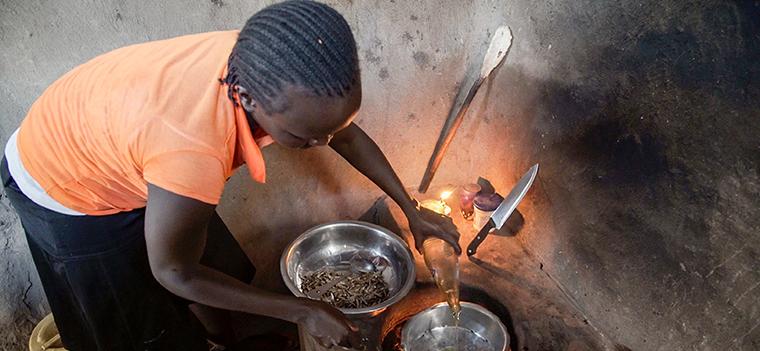News
- ESMAP has helped the World Bank to move forward a US$145 million project to help the Democratic Republic of Congo expand access to electricity for two million people.
- The support focused on unlocking private sector investment through commercial financing and risk mitigation mechanisms.
- As a result, US$25 million is allocated through the project to provide private companies with financial support and technical assistance to scale up access.
About 84 percent of the Democratic Republic of Congo’s (DRC) population has no access to electricity, among the lowest in Sub-Saharan Africa. The few households and businesses with an electricity connection receive unreliable service.
A World Bank with IDA financing of US$145 million that was recently approved will help the DRC expand electricity service for two million people in urban and rural areas. It will focus on improving poor electricity service in Western, Central, and Eastern parts of Kinshasa, increasing access to its unserved, high-density urban areas, and address weak institutional capacity and aging and unsafe distribution networks in provincial capitals.
Hampered by lack of investment and operational inefficiencies, DRC’s national power generation, transmission, and distribution utility (SNEL) and has been unable to expand electricity service beyond 16% of the population. With a commitment to achieve universal access by 2030, the government passed the 2014 Electricity Law to eliminate SNEL’s monopoly and promote involvement of private players.
But given the uncertain environment and lack of commercial financing and risk mitigation mechanisms, private sector involvement has been constrained.
ESMAP stepped in to change the situation
At early stages of project development, analytical work funded by ESMAP assessed over 30 electricity access projects from various private developers, identified the most viable ones, evaluated their business plans, and outlined potential barriers to help companies plan a stronger engagement. This led to a US$25 million component in the project to provide private sector players with financial support to scale up electricity access.
“ESMAP’s support came in at the right moment when the government was looking to attract private investment to expand access. Without ESMAP, the US$25 million project component to scale up private sector participation would not have been possible,” Alain Ouedraogo, Energy Specialist, World Bank Energy Practice
Through this work, four sub projects were identified in Tshikapa, the Virunga Park & surroundings, Beni-Butembo, and Kananga which together have the potential of adding more than 62,000 new connections covering 500,000 people.
The study was carried out in close collaboration with other development partners such as USAID, DfID, KfW, and the EU, who provided inputs and exchanged crucial knowledge on private sector involvement in the energy sector through an array of workshops.
Financial constraints were another potential challenge to private sector involvement. In many areas, up-front electricity connections fees can be very high – for example, in Tshikapa, a household has to pay about US$800 for a connection. To remedy the situation, subsidies will be provided through a Credit Support Facility and an Electrification Fund. ESMAP is supporting the government to operationalize both mechanisms.
ESMAP is also providing assistance to the Ministry of Energy and SNEL to better understand the state of the electricity access through a Multi-Tier Framework (MTF) survey that will document key attributes of electricity service, including hours of supply, quality of power, legality of connection, and others. Gender A gender expert was an integral part of the effort to ensure that gender aspects are well integrated into the project.
The World Bank has been a major development partner in the DRC’s power sector. ESMAP support strengthens the institution’s investments which are geared to help the DRC secure affordable, reliable, and sustainable energy.
Learn more about the Energy Access Program
